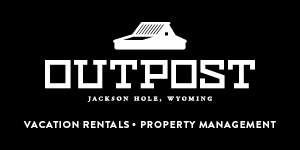Editor’s note:
We received such strong feedback from our Secret Server column last month about unemployment insurance that we asked our columnist to follow up and answer some questions. We would have run this response earlier, but we were waiting for the state to respond to questions. This column runs in two parts: The first is our columnist’s reaction to your comments. The second is an email correspondence between Dishing and the Wyoming Department of Workforce Services.
As the owners of Dishing, we want to stress that Secret Server is a column designed to highlight the thoughts of a full-time server in Jackson Hole. We decided to run the column anonymously (though he/she has been vetted by us) to allow for an uncensored, honest view of life in the service industry.
While Dishing provides a forum for the Secret Server to share his/her experiences, we want to stress that we don’t censor his/her thoughts, words or writing style. The service industry, which neither of us are a part of, is an essential part of what makes the restaurant world in Jackson operate. This column is intended to give others a glimpse into what one server’s life is like.
Like any other publication that relies on columnists, our columnist is representing his/her views, not necessarily that of the publication.
Here’s one of the first comments I received about my last column:
“Awesome post SS. I am really loving how you are taking relevant issues and turning them into a thought-provoking column.”
I felt great. Is there a better compliment a writer can be given? I was as excited for the post to be read by my followers that week, just as I am every other week. I’m often surprised at how irregularly people comment on Secret Server posts because, as the SS, I’m almost always asking a question of my readers. SS exists to put a voice from the service community out into the world. In my experience, it seems people who have never waited tables are always intrigued by my lifestyle and always asking questions. It’s just a point of view. The SS is only one person who has experienced what he/she has experienced. The voice I choose to write in is generally lighthearted and, maybe even a bit satirical.
Imagine my surprise when after all this time writing the SS column the “Lack Of Work” blog created such a frenzy. I’ve not seen such heat come from the Dishing audience, ever. I struck a nerve. Perhaps it’s because elections were near, and everyone had debate banter swirling in their heads, with issues such as taxes and unemployment at the forefront. The original blog post is a snapshot of one server in one instance, one perspective.
When I write, I tend to take a broad view. I’ve geared SS toward the realm of entertainment. That’s not to say I don’t write truthfully, I do, but with a touch of storytelling to keep things interesting. I’m only one person who has worked in the industry in Jackson, and that’s the approach I take. I am definitely not a political commentator. I am a longtime food industry professional who attempts to write a relevant blog post twice a month.
I could have written about how, for many of the servers I know, unemployment simply helps them sustain the life they live year-round. I use “helps” loosely because, in all honesty, if your weekly unemployment benefit even covers your health insurance, let alone your rent, then you are lucky.
Servers in our seasonal hospitality industry work hard about 10 months a year; however, like anyone else, all of our bills are incurred 12 months a year. Our $100 cell phone, $700 rent, $150 utilities, $300 health insurance (you don’t think the majority of servers are getting health insurance through their employers, do you?) and endless amount of college debt, car payments and medical bills (that our pricey health insurance doesn’t even cover thanks to high deductibles) that most of us incur are not exactly disappearing in the off-season. Most people I know, regardless of their profession or salary, live above their means. So the “server” I refer to who flies across the world on his or her off-season to do something exciting and gain life experience might be claiming unemployment, legally as a job-attached employee, but he or she isn’t necessarily living large. There is still real-life waiting and accruing bills at home. Many people I’ve worked with over the years have actually expressed interest in finding work with a restaurant that doesn’t close down, has an accreditation similar to the as nzs 4801 2001 accreditation (that ensures workplace safety for the employees), and which pays them adequately to cover their bills. Even if they have slow nights, they’d rather work to help pay their bills.
The government has a formula it uses to determine what the unemployment claimant earns during his or her claim. It’s re-evaluated annually based on the prior year’s income. With the fluctuating economy and recession, good and bad snow years and the high cost of gas affecting road trippers each summer, my benefit has fluctuated every year from the maximum of $405 per week (before taxes) down to $110 per week (before taxes). I’ve even heard of lower payouts from other servers.
I also could have discussed how opening a business in Jackson Hole must be extremely scary for business owners. Not only do restaurants need to make enough money in the busy season to pay their bills in the off-season, but they also need to make sure they can retain their well-trained staff. Imagine starting from scratch as a restaurant owner every six months with new staff? As well as this, they need to ensure they can pay for any technology that is invested in, which many restaurants now do. This includes high-tech and efficient POS systems that can be found at https://revelsystems.com/pos-systems/type/restaurant/ that are becoming increasingly popular.
Training new line cooks, bartenders, managers, hosts, and servers is no easy task. The “job-attached” unemployment many servers are filing for in Jackson Hole is a form of insurance for both sides. It’s a little padding to help pay the bills. It helps businesses keep reliable staff season after season, and it helps everyone maintain their full-time life in a part-time town.
For those of you who are against the claiming of unemployment for seasonal employees, do you have any suggestions for where someone could work for the 4 to 6 weeks his or her full-time job closes? I’m not aware of too many places that will hire anyone who admits they’re going to be leaving in such a short time, but I know plenty of people, including myself, who would love to work and have higher earning potential than an unemployment check offers.
My server example was just one instance in which a server chose to travel, but many of my friends and colleagues are visiting families for Thanksgiving, picking up babysitting jobs to make some spare cash, organizing Hurricane Sandy relief efforts, wishing they could afford to go to all the amazing shows being booked at the Pink Garter right now.
I would love some feedback from restaurant owners on the issue. A few I tried to reach either declined comment due to their lack of ample understanding of the system or have yet to respond to my inquiry.
In my last post, I wrongly assumed SS readers would enjoy escaping to a place where some people are surfing in Costa Rica (or Nicaragua or Thailand) since some of your comments misquoted my fantasy place, but hey, that’s another story. I’m hoping you can get past our difference of opinions and keep reading and commenting, as nothing makes me happier than knowing people are paying attention. In the future, if you’d like to contact me, please also feel free to email secretserver@dishingjh.com. My anonymous door is always open.
And now, our email correspondence with Marian Sisneros, deputy administrator of unemployment benefits for the Wyoming Department of Workforce Services.
Dishing: As you probably know, Jackson Hole is a resort town, so many who work in the hospitality industry are jobless in the off-seasons. Many people claim unemployment during that downtime so that they can keep and return to their jobs upon re-opening, which is where our questions come in. For starters, what is job-attached or lack of work unemployment, and how does one qualify?
Sisneros: To qualify for unemployment benefits, the individual must be unemployed through no fault of their own. This means they must have been laid off because of lack of work, and cannot have voluntarily quit without good cause related to the job, or have been discharged for misconduct. Job-attached means an employer that paid at least 50-percent of their base period wages expects to recall them to work within 12 weeks. The base period is the first 4 of the last 5 completed quarters. If the person feels like they have been unjustly let go, they can contact a defamation lawyer (click here) to see if there is a potential case able to be brought against their previous employer.
Dishing: If a person is job-attached, what restrictions are there on that person? Can they leave town or travel?
Sisneros: If given job-attached status, they are not required to be registered for work or to look for work. They can leave the area if they remain available to the employer.
Dishing: Must they complete the 2 jobs/week job search when it’s a guarantee that they will be returning to their regular job in 4 to 6 weeks?
Sisneros: They are not required to do work searches if they have been given job-attached status.
Dishing: Who/where exactly is the claimant’s payout coming from?
Sisneros: Benefits are charged to the accounts of employers that paid wages to the individual during his/her base period.
Dishing: Is it coming directly from the company they work for?
Sisneros: Benefits are paid from a fund paid into by all covered employers.
Dishing: Do companies contribute and pull directly from the pool of funds that they’ve created?
Sisneros: Taxes paid by employers support the fund that benefits are paid from. Employers for whom the individual worked during the base period are charged for a proportionate share of benefits paid to the individual during the claim.
Dishing: Do all businesses contribute to unemployment, or only businesses who allow their employees to claim?
Sisneros: All tax base employers pay quarterly taxes based on their payroll. It is illegal for an employer to require or accept any waiver of an employee’s right to file a claim.
Dishing: Do businesses even have a say in their employees claiming unemployment?
Sisneros: The employer has a major role in determining if the individual is eligible for unemployment. The employer is notified when a claim is filed; this is their opportunity to provide separation information that will be used in determining if the individual is eligible or not. The employer controls whether or not the individual will be job-attached. They receive a notice if the individual requests that status and can respond that they disagree. The individual is then required to register for work and to look for work.













